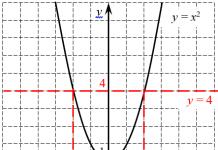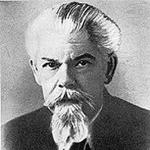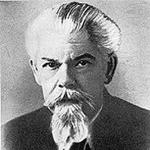Vacation for a part-time worker is issued in accordance with all the rules of the Labor Code, because this is the same employee, even if he does not work full time. Since an employment contract with part-time workers is mandatory, then guarantees must be provided to them. But is it to the full extent? In theory, since the part-time worker does not work out the rate, then he should rest in proportion to the work done. But this is not at all the case from the standpoint of Rostrud, judicial practice and the Labor Code. It is worth noting that our logic does not always coincide with the logic of legislators. It is for this reason that we first study the laws, and then turn on the logic.
A little about collaboration
Legislators allow you to work for several bosses, so long as this does not affect the results of work. And in each organization, a personal file is opened for each employee, the main document of which is an employment contract. That is, how many works - so many contracts .
Additional work can be entrusted to the main place, and in another company.
An internal part-time worker is an employee "sitting on two chairs", or rather, at two jobs in one company. He has one boss, but two jobs, and he combines different staff units. Part-time work is called internal, since two jobs are combined within one organization.
An external part-time worker is already working outside the main job, in another organization. Where they also start a personal file on him, conclude an agreement and assign a personnel number.
Rules for granting leave to a part-time worker
 Whatever the part-time worker is - external or internal, he is entitled to all labor guarantees.
Whatever the part-time worker is - external or internal, he is entitled to all labor guarantees.
Article 286 of the Labor Code obliges directors to release part-time workers to rest in the same period that is indicated in the vacation schedule at the main job. Even if the employee has not worked part-time for half a year, he must still be granted leave - in advance. At the same time, if the vacation at the main place is longer than here, then, at his request, you are obliged to let him go on administrative leave for the remaining period.
Vacation periods
Nuance: if, on the contrary, the part-time worker has a longer vacation than at the main job, no one is obliged to extend it!
And this is what Article 93 of the Labor Code says about the duration of the vacation of a part-time worker: even if the employee does not work full-time, his vacation is not cut, he can walk for the same 28 days (or longer).
Vacation schedule
According to article 123 of the Labor Code, it does not matter whether the employee has the main job or part-time job, his vacation must be according to the approved schedule.
And you need to warn him no later than two weeks before the deadline.
Part-time vacation schedule
 If the part-time worker is his own, that is, internal, then everything is simple - in the schedule we note the same period that he has as the main employee. And what about an external partner?
If the part-time worker is his own, that is, internal, then everything is simple - in the schedule we note the same period that he has as the main employee. And what about an external partner?
When applying for a job, the law does not oblige you to ask the employee for a certificate or vacation schedule from the main job. At the same time, it obliges the director to let him go at the same time as the main employer. Such discrepancies arbitrage practice explains this: if the part-time boss is already dependent on the vacation schedule at the main job, then he has the right to request supporting documents from the employee:
- vacation certificate;
- an extract from the vacation schedule;
- copy of the leave order.
However, without these documents, it is still impossible to refuse a part-time job.
Longer leave from work
Nuance: if the vacation at the main job is longer, and you have provided the administrative part-time job, do not enter this period in the vacation schedule, it will be reflected in the report card.
Part-time work during vacation at the main job
 Yes, it happens that the main place is vacation time, and part-time the employee continues to work. Is it really possible that the vacation time for various works did not match?
Yes, it happens that the main place is vacation time, and part-time the employee continues to work. Is it really possible that the vacation time for various works did not match?
Rostrud, by letter No. 1248-6-1 dated 09/08/2009, clarified that the vacation of a part-time worker should coincide with his vacation at his main job. This is motivated by the fact that the part-time worker loses the chance to fully relax.
However, there is such a judicial practice when a judge recognizes part-time leave as legal without linking it to the main job.
In Russia, the requirements of the law are treated as follows: if it is not forbidden, then it is allowed. And since a direct ban on working during vacation is not fixed anywhere, then the last word remains with the employee and the director - as agreed, so be it.
We arrange a vacation
Since the Labor Code forces you to give two weeks notice about a vacation, we will notify. Writing the notification text « I notify you that according to the vacation schedule, your annual paid vacation lasts 14 calendar days, and its period begins on February 04, 2016, and ends on February 18, 2016.».
On the notification, the part-time worker must leave an autograph and put a number.
The director of the organization also works on the terms of internal combination. Since August 1, 2016, the director has been granted leave. How long should a part-time vacation be if the duration of the vacation at the main place of work is 28 calendar days, and part-time - 42 calendar days? How to apply for leave?After considering the issue, we came to the following conclusion:
Annual paid leave for a part-time worker must be granted simultaneously with leave for the main job.
The employer is not obliged, but may, at the request of the employee, grant him unpaid leave wages for the remainder of the part-time paid leave, or replace with monetary compensation the part of the leave that is due to the part-time worker, exceeding 28 calendar days (if this employee does not belong to the categories specified in part three of article 126 of the Labor Code of the Russian Federation).
If the employee does not receive applications either for granting unpaid leave or for replacing part of the leave with monetary compensation, or the employer objects to the option indicated in the application, then at the end of the leave at the main place of work, the employee will be obliged to perform work in the main position during the period continuation of part-time vacation.
Rationale for the conclusion:
By virtue of Art. 286 of the Labor Code of the Russian Federation to persons working part-time, annual paid holidays are granted simultaneously with leave for their main job. If at a part-time job the duration of the annual paid leave of the employee is less than the duration of the leave at the main place of work, then the employer, at the request of the employee, grants him leave without pay of the corresponding duration.
The law does not contain a similar requirement for the employer in a situation where the duration of part-time leave exceeds the duration of leave at the main place of work. Consequently, in such a situation, the employer is not obliged, but may, at the request of the employee, grant him leave without pay for the remainder of the part-time paid leave (part one of article 128 of the Labor Code of the Russian Federation). GIT specialists come to a similar conclusion (see Question: The main work of an employee is the deputy director for ACH, due leave- 28 calendar days. Issued with an employee supplementary agreement to combine the position of "teacher" (56 calendar days are required). What will be the duration of the vacation: 28 or 56 calendar days? ( informational portal Rostrud "Onlineinspektsiya.RF", September 2015)).
In addition, part of the vacation that is due to a part-time worker, exceeding 28 calendar days, can be replaced at the request of the employee with monetary compensation (part one of article 126 of the Labor Code of the Russian Federation), if this employee does not belong to the categories specified in part three of article. 126 of the Labor Code of the Russian Federation.
Since in the case under consideration, both the granting of unpaid leave and the replacement of part of the leave with monetary compensation are possible only at the request of the employee and with the consent of the employer * (1), if the employee does not receive applications for either leave without pay or for replacement of a part of the vacation with monetary compensation * (2) or the employer objects to the option specified in the application, after the end of the vacation at the main place of work, the employee will be obliged to perform work in the main position during the continuation of the vacation in combination.
The rules for issuing leave for the main job and part-time work are general. So, in accordance with the third part of Art. 123 of the Labor Code of the Russian Federation, the employee must be notified against signature of the start time of the vacation no later than two weeks before it starts. As you can see, this rule has no exceptions, therefore, it fully applies to the director. At the same time, the labor legislation does not establish a form of notification of the start time of the vacation. Accordingly, the forms and methods of implementation this requirement employer determines. In practice, as a rule, the employer issues an appropriate order.
Since in this case the employer belongs to public sector organizations, when drawing up an order for granting leave (including without pay * (3)) he must apply the unified forms N T-6 and N T-6a, approved by the resolution of the State Statistics Committee of Russia dated 05.01.2004 N 1. * (4) Since vacations on the main employment contract and part-time jobs are calculated and provided for each position separately, then the employer, when granting leave to the employee at the main place of work and part-time, should draw up two (or more, if there are more employment contracts) leave orders - for each position separately.
By virtue of the fourth part of Art. 91 of the Labor Code of the Russian Federation, employers are required to keep records of the time actually worked by each employee. Order of the Ministry of Finance of Russia dated March 30, 2015 N 52n approved the form of the time sheet N 0504421, according to Guidelines on its completion, for the days of the annual regular basic and additional leave, the mark "O" is affixed, for the days of leave without saving - "A", and the hours actually worked - "F".
Because when working on internal combination the employee is assigned an additional personnel number (numbers), then the marks in the time sheet are affixed by the employer for each place of work (position, personnel number) separately.
Prepared answer:
Legal Consulting Service Expert GARANT
Mazukhina Anna
Response quality control:
Reviewer of the Legal Consulting Service GARANT
Voronova Elena
The material was prepared on the basis of an individual written consultation provided as part of the Legal Consulting service.
*(1) Cases when the employer is obliged, on the basis of a written application of the employee, to provide unpaid leave of a certain duration are listed in the second part of Art. 128 of the Labor Code of the Russian Federation. In other cases, the employee's request for unpaid leave is not binding on the employer.
Pay monetary compensation while continuing labor relations is also a right, and not an obligation, of the employer (see the letters of Rostrud dated 03/01/2007 N 473-6-0 and dated 06/08/2007 N 921-6).
*(2) An application for compensation for the part of the vacation exceeding 28 days must be submitted by the employee before the start of the vacation.
*(3) See Encyclopedia of Solutions. Leave without pay.
*(4) With the entry into force of the Federal Law of December 6, 2011 N 402-FZ "On Accounting" (hereinafter - Law N 402-FZ), namely from January 1, 2013, unified forms of primary accounting documents ceased to be mandatory for organizations of the non-state sector (they have the right to use the forms of primary accounting documents developed by them independently). State and municipal institutions, including budget ones, belong to public sector organizations (clause 9, article 3 of Law N 402-FZ), therefore, when maintaining personnel office work they must use the appropriate uniform forms.
Vacation for a part-time workerprovide subject to the provisions of Chapter 44 of the Labor Code of the Russian Federation. Annual paid rest is one of the mandatory guarantees, so any restriction of an employee's rights in this regard threatens the employer with sanctions. Avoiding disputes will allow following the recommendations outlined in this article.
Vacation of an internal part-time worker at the main place of work. General principles
The possibility of replacing several positions by an employee of the organization at once is provided for by Art. 60.1 of the Labor Code of the Russian Federation. Relationships are formalized by an additional employment contract.
According to Art. 286 of the Labor Code of the Russian Federation, a part-time worker has the right to rest with pay within the framework of each of the contracts, while vacations are granted at the same time. In most cases, this period is limited to 28 calendar days (Article 115 of the Labor Code of the Russian Federation), the addition of deadlines is not allowed.
All guarantees are reserved for the employee. He has the right to go on vacation:
- temporary disability;
- on pregnancy and childbirth;
- caring for sick relatives and children.
Art. 287 of the Labor Code of the Russian Federation excludes compensation for part-time workers from the list related to work in the Far North and in regions equated to it. However, the legislator retained for the part-time worker the right to leave in Art. 321 of the Labor Code of the Russian Federation. We will discuss the conflict of norms below.
IMPORTANT! In practice, part-time relationships are often confused with combination (Article 60.2 of the Labor Code of the Russian Federation). The right to annual leave with the preservation of earnings is directly related to the conclusion of an additional contract in another organization. This conclusion follows from the analysis of Art. 286 of the Labor Code of the Russian Federation. The legislator uses precise wording that excludes a broad interpretation of the articles.
Who can be an external or internal part-time worker?
The legislator has established a number of restrictions designed to eliminate the possibility of abuse. According to Art. 282 of the Labor Code of the Russian Federation, the ban applies to:
- minors;
- personnel employed in work with harmful or dangerous conditions;
- other employees named in the federal laws of Russia.
Heads of legal entities belong to a special category: heads of enterprises can conclude a part-time agreement only with the approval of the founders (Article 276 of the Labor Code of the Russian Federation). However, even with the consent general meeting the owners of the director cannot be included in the structures exercising financial control and supervision over the management of the organization.
There are also restrictions in the law related to professional activity. Yes, federal regulations special conditions have been introduced for judges, lawyers, deputies, law enforcement officers. Additional rules apply to employees of medical and cultural institutions, teachers, pharmacists. Also Art. 329 of the Labor Code of the Russian Federation prohibits part-time employment for persons managing transport and responsible for traffic safety.

Why is the vacation of an internal part-time worker paid according to special rules?
The peculiarity of the calculations is the use of different personnel numbers. Accruals are made under separate agreements, but one person remains the recipient. In this case, payment is subject to 28 calendar days (Articles 114, 115 of the Labor Code of the Russian Federation) for each agreement. The same principle applies if you have the right to a longer rest.
The calculation of payment begins with the definition seniority. According to Art. 121 of the Labor Code of the Russian Federation, it includes:
- the actual time of work under a specific contract;
- time of release from duties without pay for up to 14 days;
- forced walks.
The exception is subject to all the time of absence from the workplace without good reason and parental leave. illustrative example calculation of the length of service of a part-time worker is given in the decision of Ordzhonikidzevsky district court Perm in case No. 2-2222/2016 of 07/12/2016. As part of the dispute, a formula was demonstrated for calculating the number of vacation days for the actually worked period of time:
(28 calendar days / 12 months) × Number of months actually worked,
where 28 calendar days is the number of vacation days provided by law; 12 months is the number of months in a year.
Thus, it turns out that for each month of work experience, a citizen is entitled to at least 2 days of rest.
The duration of part-time vacations and the main place of work is calculated separately. At the same time, Art. 286 of the Labor Code of the Russian Federation establishes the requirement to provide time for rest at the same time under all labor agreements. The condition of reaching 6 months of service is not an obstacle, since vacation is given to a part-time worker in advance. The validity of this approach is confirmed by the decision of the Royal City Court of the Moscow Region in case No. 2-1369/16 dated May 19, 2016.
Average earnings of an external/internal part-time job
The procedure for accruals is established by Art. 139 of the Labor Code of the Russian Federation and detailed by the regulation approved by Decree of the Government of Russia dated December 24, 2007 No. 922. The employer is obliged to calculate the average daily earnings for each employment agreement, and then multiply it by the number of vacation days. For this purpose, the following formula is used:
(Actual salary for the year / 12 months / 29.3 days) × rest days,
where 29.3 days is the standard number of days in a month, established by Art. 139 of the Labor Code of the Russian Federation.
An example of the application of such a counting algorithm is given in the ruling of the Supreme Court of the Komi Republic in case No. 33-3395/2011. In refusing to satisfy the complaint, the cassation instance pointed out the need to share the average monthly earnings. When paying for part-time vacations and the main place of work, it is impossible to refer to the total income from labor activity.
IMPORTANT! The calculation of the actual remuneration under the contract is carried out taking into account the exceptions listed in clause 5 of government decree No. 922. From the amount of annual payments, it is necessary to deduct accruals made during forced downtime, business trips, and sick leave. Compensation for earnings during strikes in which the employee did not participate is also not subject to accounting..
Separate issues of registration of vacation of external and internal part-time workers
A comprehensive analysis of legal norms and clarifications from federal departments make it possible to avoid errors in calculations.
- Terms and procedure of payments
Since the instructions on this subject in Chap. 44 of the Labor Code of the Russian Federation is not contained, the employer is obliged to follow Art. 136. You will have to transfer vacation pay for each employment contract 3 days before the start of the holiday. Recall that the number of payment transactions depends on the number of agreements, that is, to issue money in one amount internal part-time it is impossible, because the grounds for payments will be different. - Vacation split requirement
Art. 286 of the Labor Code of the Russian Federation obliges employers to combine periods of annual rest under the basic and additional labor agreements. An employee's application cannot serve as a basis for granting part-time leave and the main place of service in different time. In a letter dated 05/08/2009 No. 1248-6-1, representatives of Rostrud explained the legal position: from the point of view of the service, the norm is aimed at ensuring good rest and there is no opportunity for the organization to change the order. - Part time
Because Art. 284 of the Labor Code of the Russian Federation establishes a limit on the duration of a part-time job change of 4 hours, accountants have a question about calculating vacation experience. An exhaustive answer to it is given by Art. 93 of the Labor Code of the Russian Federation: if an employee has worked the amount of time specified in the agreement, the day is counted in full.
Additional vacation in the conditions of the Far North - we pay according to special rules
Judicial practice in this area is ambiguous. Thus, in the decision of the Igarsk City Court Krasnoyarsk Territory in case No. 2-316/2012, it was stated that Art. 287 of the Labor Code of the Russian Federation is applicable only to guarantees. Issues of granting additional leave to a part-time worker for labor activity in the conditions of the Far North should be regulated by the norms of Art. 321 of the Labor Code of the Russian Federation. In this case, the servants of Themis were not embarrassed by the fact of using the right to annual rest at their main place of work.
A similar opinion was expressed by the Murmansk Regional Court. The question of the legality of providing an internal part-time job with additional annual leave with the preservation of earnings was resolved positively. In the cassation ruling in case No. 33-2277 dated 12/13/2011, it is indicated that it is necessary to apply Art. 321 of the Labor Code of the Russian Federation.
The opposite approach was demonstrated by the Yakut City Court of the Republic of Sakha. In the decision on dispute No. 2-345-2012, the legal assessment of Art. 321 of the Labor Code of the Russian Federation was not given. Denying the requirements, the court referred only to the provisions of Art. 287 of the Labor Code of the Russian Federation. Thus, the opinions of the courts differ, so employers should be guided by the most common practice - in this case, the risk will be minimal.
In conclusion, we recall that violation of the rules for granting vacations entails administrative responsibility. An unscrupulous employer may be subject to the sanctions provided for in Art. 5.27 of the Code of Administrative Offenses of the Russian Federation. In addition, an employee whose interests have been infringed has the right to demand compensation.
Part-time work is an additional burden on the employee. Such workers need vacations, just like employees working in only one job. The Labor Code of the Russian Federation guarantees vacation for part-time workers, as well as for the main workers, but with some features.
Recall that part-time workers must be provided with all the guarantees provided for by labor legislation (Article 287 of the Labor Code of the Russian Federation).
This does not apply only to those guarantees that are provided:
- employees working in companies in the Far North;
- workers who combine work with education.
These benefits and compensations can only be obtained at the place of the main job.
Leave for the main job and part-time
Leave for employees is provided in accordance with the approved schedule (Article 123 of the Labor Code of the Russian Federation). For the main employer and the part-time employer, this schedule can be very different. The Labor Code in this case establishes that persons working part-time should be granted annual paid leave at the same time when the part-time worker goes on vacation in the company where he has his main job (part 1 of article 286 of the Labor Code of the Russian Federation).
The duration of part-time work and work at the main place rarely coincide. And the employee has the right to receive leave for the first working year after six months of continuous work (part 2 of article 122 of the Labor Code of the Russian Federation). Part-time workers who did not have time to work out this period, going on vacation at their main job, leave in the company where he works part-time must be provided in advance (Article 286 of the Labor Code of the Russian Federation).
Vacation for part-time workers: number of days
The employer must enable the employee to receive basic annual leave. The number of calendar days of such leave should not be less than 28 (part 1 of article 115 of the Labor Code of the Russian Federation).
The legislation also provides for longer paid holidays:
- extended main for a certain category of workers (for example, researchers);
- annual additional for workers with special working conditions.
The employer, by virtue of his capabilities (material and production), has the right, on his own initiative, to establish for his employees additional holidays(part 2 of article 116 of the Labor Code of the Russian Federation).
Are part-time employees entitled to vacation pay?
By releasing an employee on annual leave, the employer guarantees him the preservation of the place of work and the payment of average earnings (Article 114 of the Labor Code of the Russian Federation). These guarantees also apply to part-time workers.
Vacation pay for part-time workers is calculated in general order in accordance with Art. 139 of the Labor Code of the Russian Federation. The calculation is regulated in more detail by the Regulation approved by Decree of the Government of the Russian Federation of December 24, 2007 N 922.
Calculation of leave to an external part-time worker and internal
The rules for calculating vacation are spelled out in article 120 of the Labor Code of the Russian Federation:
- the time of paid leave (basic and additional) is calculated in calendar days;
- public holidays are not included in total number vacation days;
- to calculate the total period of paid annual leave, you need to sum up additional holidays with the annual main one;
- vacation is not limited to a maximum limit.
The number of vacation days due to the employee at the main job and the number of vacation days in combination may not coincide. This applies to vacations when part-time in another organization. If part-time annual paid leave turns out to be shorter than at the main job, then the employer, at the request of the part-time job, must extend his leave. In this case, wages will not be saved for the exceeding period (

















